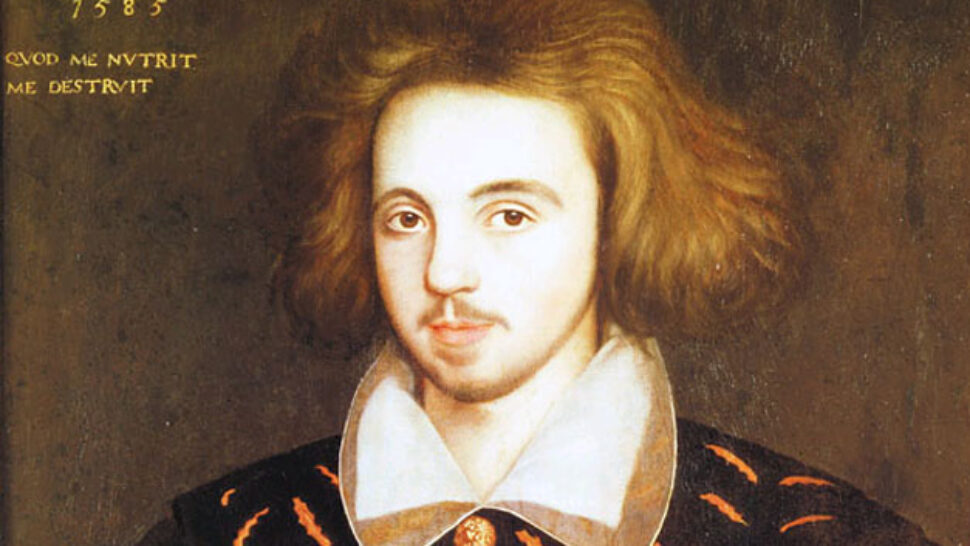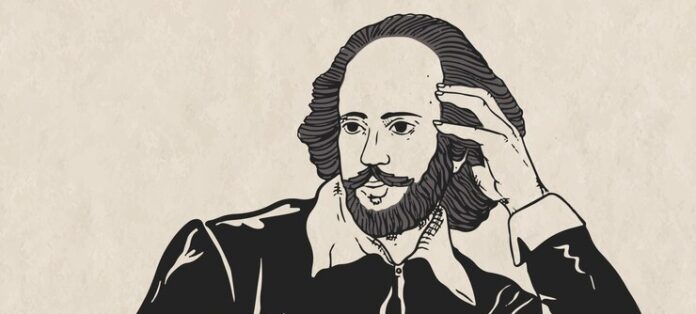By Maria-Nefeli Andredaki,
Every internet user is familiar with conspiracy theories. They range from Area 51 and Covid-19 to Tupac’s death and the secret relationships among boy-band members. People love to speculate and gossip, creating over-the-top stories while trying to prove that things are not what they seem to be. Apart from the lack of sufficient evidence or the emotional aspect of conspiracy stories, a common characteristic is often prejudice, which played an important role in Shakespeare’s authorship conspiracy theory. “What is that?”, you may ask. Well, as strange as it sounds, there is a considerable chunk of people out there, including scholars, who believe that William Shakespeare was not a real person but just an alias under which other writers or politicians could publish their plays.
The most prominent of these figures that are rumored to have “been” Shakespeare is revered playwright Christopher Marlowe, who, in contrast to Shakespeare, attended University.

This is exactly where “prejudice” comes into play. Shakespeare was the son of a shoe-maker. He was home-schooled by his mother and was taught Latin at a basic grammar school that was free for all boys who chose to attend. He never went to University and his name was at some point found on a list of actors. This means that an uneducated actor had the ability and the talent to create legendary works, which are admired and taught around the world to this day. His success was evident from the very beginning and this did not sit right with many people. It made no sense to them (and it still doesn’t), that someone could become so successful without having the privilege to obtain a higher education. Their close-mindedness knew no bounds, if the only possible scenario for them was that Shakespeare was basically a fraud.
Christopher Marlowe’s life does more than enough to fuel this conspiracy; born just two months before Shakespeare, making it unbelievable that two of the most important playwrights were born so close to each other, Marlowe was exceptional in his studies at Cambridge and was heavily rumored to have been recruited as a spy for the government. His accidental death at a drunk tavern brawl seems all too convenient for someone like him, someone who may have wanted to flee and could only pursue his passion for writing under an alias. At least, that is what the conspiracy theory advocates support.

Now why is this important? Well, for starters, if you are a nerd like me, I believe that you may find debates like these highly interesting. Apart from that, however, I think it is important to highlight how prejudice can take root, spread, and attack realities we take for granted. If Shakespeare, admittedly the most iconic playwright we have ever known, can be questioned for his mere existence, and again this is something that happens till this day, how are we to discover, support and protect artists who come from even less privileged communities? If the lack of education of a middle-class family white man is enough to raise suspicion for the authorship of his works, even with a success of such magnitude, imagine how hard marginalized people have to fight to put their work out there, gain respect, and prove their worth.
All of this to say, the reason for this absurd conspiracy theory is indeed prejudice against those whom society deems inferior. To quote Delia Bacon, this “stupid, illiterate third-play actor” will always be remembered as the greatest playwright in the world, while the “disbelievers” will keep chasing their tales.
References
- Shakespeare’s School. Shakespeare Birthplace Trust. Available here
- Who really wrote Shakespeare? The Guardian. Available here




